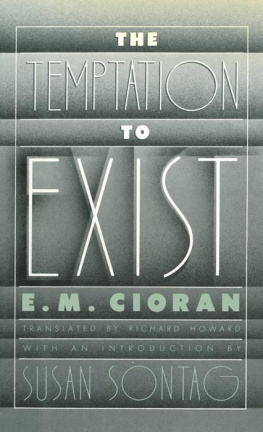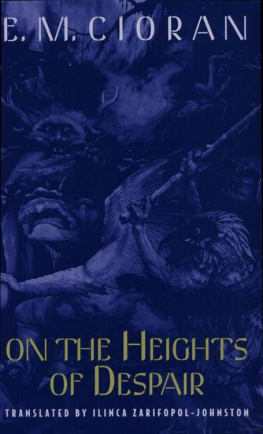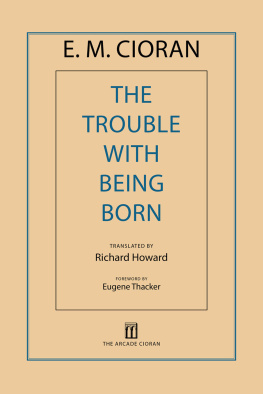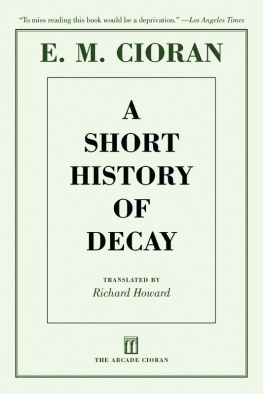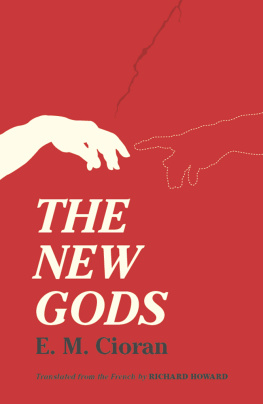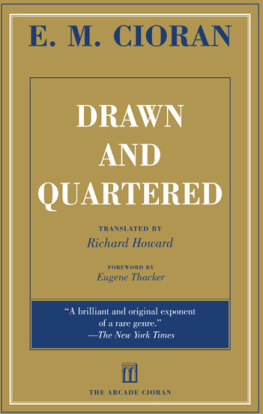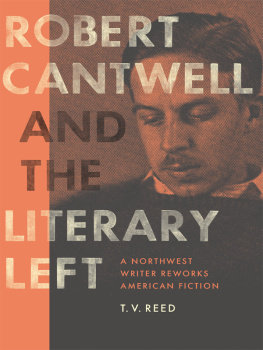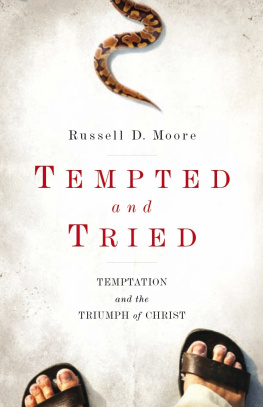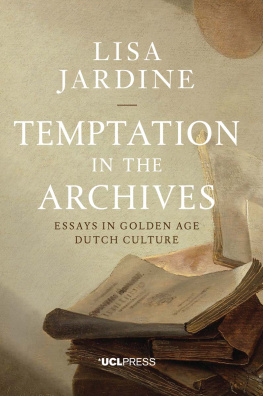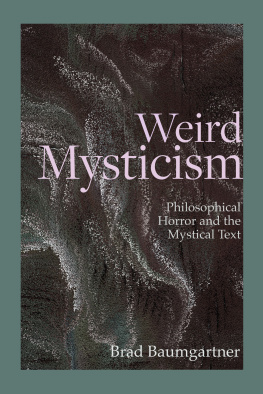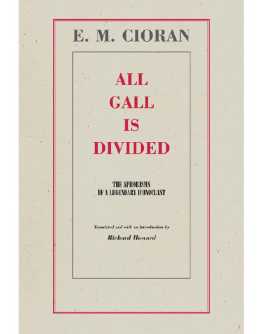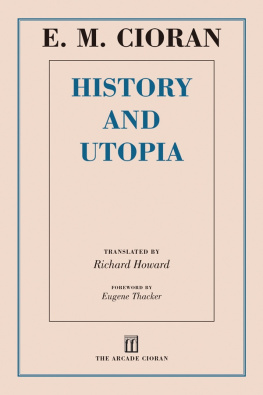Copyright 1956, 2011 by Librairie Gallimard
English translation copyright 1968, 2011 by Quadrangle Books, Inc. Introduction copyright 1968, 2011 by Susan Sontag
All Rights Reserved. No part of this book may be reproduced in any manner without the express written consent of the publisher, except in the case of brief excerpts in critical reviews or articles. All inquiries should be addressed to Arcade Publishing, 307 West 36th Street, 11th Floor, New York, NY 10018.
Arcade Publishing books may be purchased in bulk at special discounts for sales promotion, corporate gifts, fund-raising, or educational purposes. Special editions can also be created to specifications. For details, contact the Special Sales Department, Arcade Publishing, 307 West 36th Street, 11th Floor, New York, NY 10018 or .
Originally published in France under the title La Tentation dExister.
Arcade Publishing is a registered trademark of Skyhorse Publishing, Inc., a Delaware corporation.
10 9 8 7 6 5 4 3 2 1
Library of Congress Cataloging-in-Publication Data is available on file.
ISBN: 978-1-61145-553-3
Table of Contents
INTRODUCTION
What is the good of passing from one untenable position to another, of seeking justification always on the same plane?
SAMUEL BECKETT
Every now and then it is possible to have absolutely nothing; the possibility of nothing.
JOHN CAGE
O URS is a time in which every intellectual or artistic or moral event gets absorbed by a predatory embrace of consciousness: historicizing. Any statement or act can be assessed as a necessarily transient development or, on a lower level, belittled as mere fashion. The human mind possesses now, almost as second nature, a perspective on its own achievements that fatally undermines their value and their claim to truth. For over a century, this historicizing perspective has dominated our ability to understand anything at all. Perhaps once a marginal tic of consciousness, its now a gigantic, uncontrollable gesturethe gesture whereby man indefatigably patronizes himself.
We understand something by locating it in a multi-determined temporal continuum. Existence is no more than the precarious attainment of relevance in an intensely mobile flux of past, present, and future. But even the most relevant events carry within them the form of their obsolescence. Thus, a single work is eventually a contribution to a body of work; the details of a life form part of a life-history; an individual life-history is unintelligible apart from social, economic, and cultural history; and the life of a society is the sum of preceding conditions. Meaning drowns in a stream of becoming: the senseless and over-documented rhythm of advent and supercession. The becoming of man is the history of the exhaustion of his possibilities.
Yet there is no outflanking that demon of historical consciousness by turning the corrosive historicizing eye on it. Just as that succession of exhausted possibilities (unmasked and discredited by thought and history itself) in which man now situates himself seems far from being simply a mental attitude and therefore, it might be hoped, capable of being annulled by refocusing the mind. The best of the intellectual and creative speculation carried on in the West over the past hundred and fifty years seems incontestably the most energetic, dense, subtle, sheerly interesting, and true in the entire lifetime of man. And yet the equally incontestable result of all this genius is our sense of standing in the ruins of thought, and on the verge of the ruins of history and of man himself. (Cogito ergo boom.) More and more, the shrewdest thinkers and artists are precocious archaeologists of these ruins-in-the-making, indignant or stoical diagnosticians of defeat, enigmatic choreographers of the complex spiritual movements useful for individual survival in an era of permanent apocalypse. The time of collective visions may well be over: by now both the brightest and the gloomiest, the most foolish and the wisest, have been set down. But the need for individual spiritual counsel has never seemed more acute. Sauve qui peut.
*
One way of explaining that commonplace of contemporary intellectual historians: the collapse, sometime in the early nineteenth century, of the venerable enterprise of philosophical system-building. Since the Greeks, philosophy (whether fused with religion or conceived as an alternative, secular wisdom) had for the most part been a collective or supra-personal vision. Claiming to give an account of what is, in its various epistemological and ontological layers, philosophy secondarily insinuated an implicitly futuristic standard of how things ought to beunder the aegis of notions like order, harmony, clarity, intelligibility, consistency, etc. But the survival of these collective impersonal visions depends on couching philosophical statements in such a way as to admit of multiple interpretations and applications, so that their bluff cant be called by events. Renouncing the advantages of myth, which had developed a highly sophisticated narrative mode of accounting for change and conceptual paradox, philosophy developed a new rhetorical mode: abstraction. Upon this abstract, atemporal discoursewith its claim to be able to describe the non-concrete universals or stable forms that underpin the mutable worldthe authority of philosophy has always rested. More generally, the very possibility of the objective, formalized visions of Being and of human knowledge proposed by traditional philosophy depends on a particular relation between permanent structures and change in human experience, in which nature is the dominant theme and change is recessive. But this relation has been upsetpermanently?since the era climaxed by the French Revolution, when history finally pulled up alongside nature and then took the lead.
At the point that history usurps nature as the decisive framework for human experience, man begins to think historically about his experience, and the traditional ahistorical categories of philosophy become hollowed out. The only thinker to meet this awesome challenge head-on was Hegel, who thought he could salvage the philosophical enterprise from this radical reorientation of human consciousness by presenting philosophy as, in fact, no more and no less than the history of philosophy. Still, Hegel could not refuse to present his own system as truethat is, as beyond history by virtue of its incorporation of the historical perspective. So far as Hegels system was true, then, it ended philosophy. Only the last philosophical system was philosophy, truly conceived. So the eternar is re-established once more, after all; and history comes (or will come) to an end. But history did not stop. Mere time proved Hegelianism as a system, though not as a method, bankrupt. (As a method, proliferating into all the sciences of man, it confirmed and gave the largest single intellectual impetus to the consolidation of historical consciousness.)
And this quest for the eternalonce so glamorous and inevitable a gesture of consciousnessnow stood exposed, as the root of philosophical thinking, in all its pathos and childishness. Philosophy dwindled into an outmoded fantasy of the mind, part of the provincialism of the spirit, the childhood of man. However firmly philosophical statements might cohere into an argument, there seemed no way of dispelling the radical question that had arisen as to the value of the terms composing the statements, no way of restoring a vast loss of confidence in the verbal currency in which philosophical arguments had been transacted. Confounded by the new surge of an increasingly secularized, drastically more competent and efficient human will bent on controlling, manipulating, and modifying nature, its ventures into concrete ethical and political prescription lagging far behind the accelerating historical change of the human landscape (among which changes must be counted the sheer accumulation of concrete empirical knowledge stored in printed books and documents), philosophys leading words came to seem excessively overdetermined. Or, what amounts to the same thing, undernourished, emptied of meaning.

